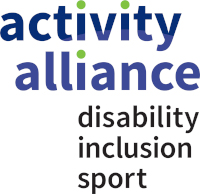Title
Examining the construction of identity among high performance athletes
Research Area
Sport; Tackling Inactivity
Author
Devonport, T. J., Russell, K., & Leflay, K.
Summary of Findings
Sporting role models are thought to have a significant impact on the beliefs and actions of individuals (Vescio, Wilde, and Crosswhite 2005). Many athletes in the study were acutely aware of their status as a role model and embraced the opportunity to try and influence young people in a positive way. Participants sought to champion their sport and the physical and psychological qualities that participation produces. In doing so, for many participants gendered performances were evident in both the production and interpretation of the images produced.
The significance of this is that whilst role models have been shown to influence young people in partaking in sport (May 2009; Reid 2017), this is dependent on the perceived relevance of that athlete based on matching of dimensions of identity (Gibson 2004; Bricheno and Thornton 2007; May 2009). In other words, if sports imagery of male and female athletes consistently conforms with conventional notions of masculinity and femininity, it may fail to inspire and attract those who do not conform to such notions.
Implications
Whilst the images used to present sporting ‘role models’ may be influenced by governing body remits or funder guidelines, it is important to remember that individual sport performers must have their vision of an athletic identity represented too, and that heterogeneity of sports images may encourage a more individuals to ‘give sport a go’.
.png)













